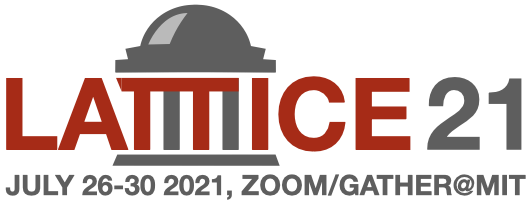Speaker
Description
An important aspect to consider in practical applications of quantum computing
is the computational cost of a quantum state preparation. Quantum adiabatic evolution is a possible technique based on the slow time evolution of the Hamiltonian from a simple one to the target one. A different approach is the so-called Rodeo algorithm, where stochastically, and in a recursive manner, all states outside a given energy interval are removed.
We discretize the Schwinger model Hamiltonian with a $\theta$ term, using staggered fermions, and compare the convergence properties of the two algorithms. We also study the impact of increasing the step-size in the Trotter evolution, to assess the feasibility of these type of calculations on a real quantum device.
